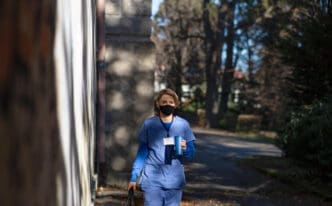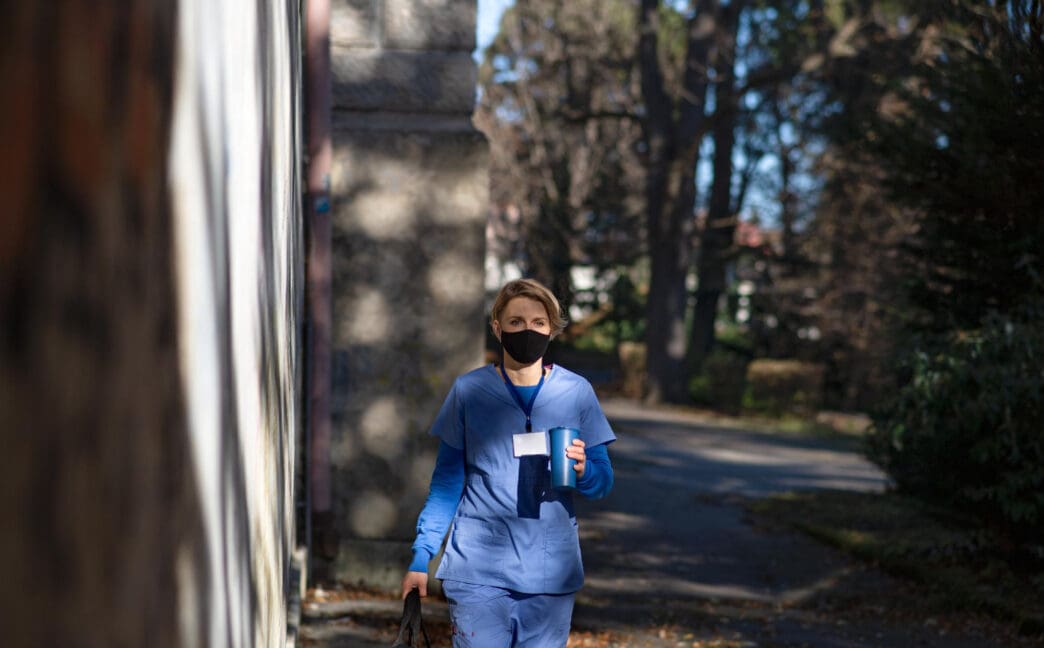Executive Summary
- Rural health clinics in Virginia are closing, with a local provider directly attributing the shutdowns to President Donald Trump’s “One Big Beautiful Bill Act” and its impact on healthcare delivery.
- The Congressional Budget Office projects the legislation will reduce Medicaid spending by over $900 billion and could lead to 7.5 million more uninsured people by 2034, with new work requirements disproportionately affecting rural communities.
- Republicans established a $50 billion fund for rural health providers, but critics argue it is insufficient to offset the estimated $137 billion decline in federal Medicaid spending in rural areas, making the issue a significant point of contention in upcoming elections.
The Story So Far
- The recent closures of rural health clinics in Virginia are directly attributed by a local healthcare provider to President Donald Trump’s “One Big Beautiful Bill Act,” which is projected to significantly reduce Medicaid spending by over $900 billion and increase the number of uninsured individuals. These policy changes, particularly new work requirements, are expected to disproportionately impact vulnerable rural communities already facing limited patient pools and employment difficulties, thereby intensifying political risks for Republicans as Democrats link the crisis to Trump and his party in upcoming elections.
Why This Matters
- The closure of rural health clinics in Virginia, directly attributed by a healthcare provider to President Donald Trump’s health legislation, is significantly impacting healthcare access for vulnerable rural communities and signals broader national challenges, given projections of substantial Medicaid spending reductions and an increase in uninsured individuals. This development is intensifying political risks for Republicans, making rural healthcare a critical and contentious issue in upcoming state and national elections as Democrats actively link the crisis to Trump and his party.
Who Thinks What?
- Augusta Medical Group and Democratic leaders attribute the closure of rural health clinics to President Trump’s “One Big Beautiful Bill Act,” citing its federal spending cuts, particularly to Medicaid, and new work requirements as detrimental to already strained rural healthcare systems.
- Republicans, including Ken Nunnenkamp and Dr. Mehmet Oz, defend President Trump’s health legislation, emphasizing the establishment of a $50 billion fund as a significant investment to address rural health challenges and suggesting that wise investment could transform struggling systems.
Rural health clinics in Virginia are closing, with a local healthcare provider directly attributing the shutdowns to President Donald Trump’s major health legislation, signed just two months prior. Augusta Medical Group announced the closure of three facilities serving communities along the Blue Ridge Mountains, stating it was an “ongoing response to the One Big Beautiful Bill Act and the resulting realities for healthcare delivery.” This development is intensifying political risks for Republicans as Democrats seize on the issue, linking the crisis in rural healthcare to Trump and his party in upcoming elections.
Impact on Rural Communities
The closures affect towns like Buena Vista, a community of 6,600 people that is losing its local clinic. This situation is drawing significant attention from Democratic leaders, including gubernatorial nominee Abigail Spanberger, who has campaigned in affected areas to highlight the legislation’s consequences for rural voters.
Marshall Cohen, a veteran Democratic strategist, warned that these closures represent “the tip of the iceberg” for Virginia and signal broader challenges for rural healthcare nationwide. He emphasized that rural hospitals were already under strain before the federal spending cuts introduced by the new law.
Legislative Details and Projections
According to projections from the Congressional Budget Office (CBO), the legislation is set to reduce Medicaid spending by over $900 billion in the next decade. The CBO’s analysis also estimates that approximately 7.5 million more people could become uninsured by 2034 due to the policy changes, with a significant portion (5.3 million) affected by new work requirements for many low-income adult enrollees.
Tim Layton, an associate professor of public policy and economics at the University of Virginia, noted that these work requirements are likely to disproportionately impact rural communities, where residents often face greater difficulty finding employment. Rural health care providers already contend with limited patient pools and long-term population loss, making them particularly vulnerable to these policy shifts.
Researchers have identified 338 rural health facilities across the country, including six in Virginia, that are considered endangered by the legislative changes.
Republican Response and Funding Debate
In response to concerns about the cuts, Republicans in Washington established a $50 billion fund specifically for rural health providers. The initiative invites “all 50 states to apply for funding to address each state’s specific rural health challenges.” Dr. Mehmet Oz championed the fund, suggesting that wise investment could transform struggling rural health systems.
Ken Nunnenkamp, executive director of the Virginia GOP, defended the measure, calling the fund “effectively the largest investment in rural hospitals in decades.” He also noted that Augusta Health indicated patients could be reassigned to other facilities and that a mobile clinic would be utilized to mitigate the impact of the closures.
However, critics argue the fund may not be sufficient. Layton described the $50 billion as a “short-term patch,” predicting it “will go pretty quick.” The Kaiser Family Foundation further highlighted this concern, reporting that “federal Medicaid spending in rural areas is estimated to decline by $137 billion, more than the $50 billion appropriated for the rural health fund.”
Political Repercussions
Virginia Lt. Gov. Winsome Earle-Sears proposed using the state’s rainy day fund to help cover additional healthcare funding needs. However, Spanberger countered this suggestion, stating, “This is not a rainy day. This is a bad bill that came out of Washington,” emphasizing the need for a more comprehensive solution.
Democrats indicate they are “willing to listen” to rural voters as they continue to engage on the policy changes. The closures and their attributed cause are poised to be a significant point of contention in upcoming electoral contests, particularly as parties vie for support in rural constituencies.
Outlook
The recent closures of rural health clinics in Virginia, directly linked by a healthcare provider to President Trump’s health legislation, underscore the contentious debate surrounding its impact on healthcare access. With projections indicating significant reductions in Medicaid spending and an increase in uninsured individuals, especially in vulnerable rural areas, the issue has quickly become a critical battleground in state and national elections.








